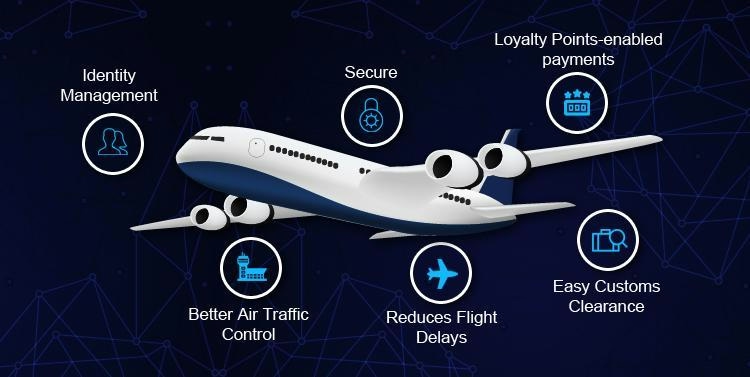AeroGenie — 您的智能副驾驶。
热门趋势
Categories
Blockchain Enhances Aviation Through Supply Chain Security, Maintenance Logs, and Passenger Identity

Blockchain Enhances Aviation Through Supply Chain Security, Maintenance Logs, and Passenger Identity
The aviation sector is increasingly integrating blockchain technology to improve operational efficiency, bolster security, and streamline critical processes such as supply chain management, maintenance documentation, and passenger identity verification. A recent report by DataM Intelligence forecasts that the global aviation blockchain market will expand at a compound annual growth rate (CAGR) of 22.5% from 2024 to 2031. This growth is driven by the rising adoption of distributed ledger technologies among airlines, original equipment manufacturers (OEMs), and maintenance, repair, and overhaul (MRO) providers.
Transforming Aviation Operations with Blockchain
Blockchain’s fundamental characteristics—immutability, transparency, and secure data sharing—are revolutionizing aviation operations. The technology enables tamper-proof maintenance records, real-time traceability of aircraft parts, and secure management of passenger identities. These capabilities help reduce fraud, accelerate audit processes, and facilitate seamless ticketing and loyalty program management.
Recent industry milestones highlight blockchain’s growing influence. In March 2025, Lufthansa Technik introduced a blockchain-based digital maintenance log platform, which reduced audit times by 40% and enhanced the tracking of parts provenance. The following month, Airbus collaborated with IBM to establish a blockchain-powered supply chain network for critical aircraft components, improving real-time visibility and preventing counterfeit parts. In June 2025, SITA piloted a blockchain-enabled digital identity solution with American Airlines, enabling passengers to securely share travel credentials and expedite airport processing.
Market Dynamics and Key Players
The aviation blockchain landscape is shaped by a range of innovative companies including Loyyal Corporation, Ozone, Microsoft, Winding Tree, Aeron Labs, Infosys, Moog Inc., IBM, and Zamna Technologies. These organizations are advancing applications such as flight and crew data management, frequent flyer programs, smart contracts, and cargo and baggage tracking, driving the sector’s digital transformation.
Regional Growth and Adoption Trends
Blockchain adoption in aviation is gaining traction worldwide, with notable growth anticipated in North America, Europe, and the Asia-Pacific region. Countries such as the United States, Germany, China, and Japan are expected to lead this expansion, supported by strong aviation industries and proactive regulatory frameworks that encourage technological innovation.
Challenges and Industry Perspectives
Despite its potential, the aviation blockchain market faces several challenges. Regulatory uncertainties, difficulties integrating blockchain with existing legacy systems, and the necessity for broad industry adoption remain significant obstacles. While some traditional players exhibit skepticism toward blockchain, more progressive companies are embracing the technology or forming strategic alliances to leverage established blockchain platforms.
Responses among competitors vary, with some developing proprietary blockchain solutions and others pursuing partnerships. The recent launch of Moca Chain by the Moca Foundation exemplifies growing interest in self-sovereign identity solutions, which promise to enhance passenger data security and privacy. Furthermore, as concerns about AI-driven threats to supply chains intensify, the demand for robust blockchain-based security measures becomes increasingly critical.
Future Outlook
As the aviation industry advances its digital transformation, blockchain is set to play a central role in enhancing transparency, security, and operational efficiency. Although challenges persist, ongoing innovation and strategic collaborations are expected to accelerate blockchain adoption, reshaping the competitive landscape and establishing new benchmarks for excellence in aviation operations.

Capital A Completes Sale of Aviation Business to AirAsia X

Four Gateway Towns to Lake Clark National Park

PRM Assist Secures €500,000 in Funding

Should Travelers Pay More for Human Support When Plans Go Wrong?

InterGlobe Aviation Shares Rise 4.3% Following January Portfolio Rebalancing

Key Market Segments Shaping Airline Route Profitability Software

Locatory.com Gains Traction Among Aviation MROs and Suppliers

JetBlue Flight Makes Emergency Landing Following Engine Failure

58 Pilots Graduate from Ethiopian University

The Engine Behind Boeing’s Latest Widebody Aircraft
